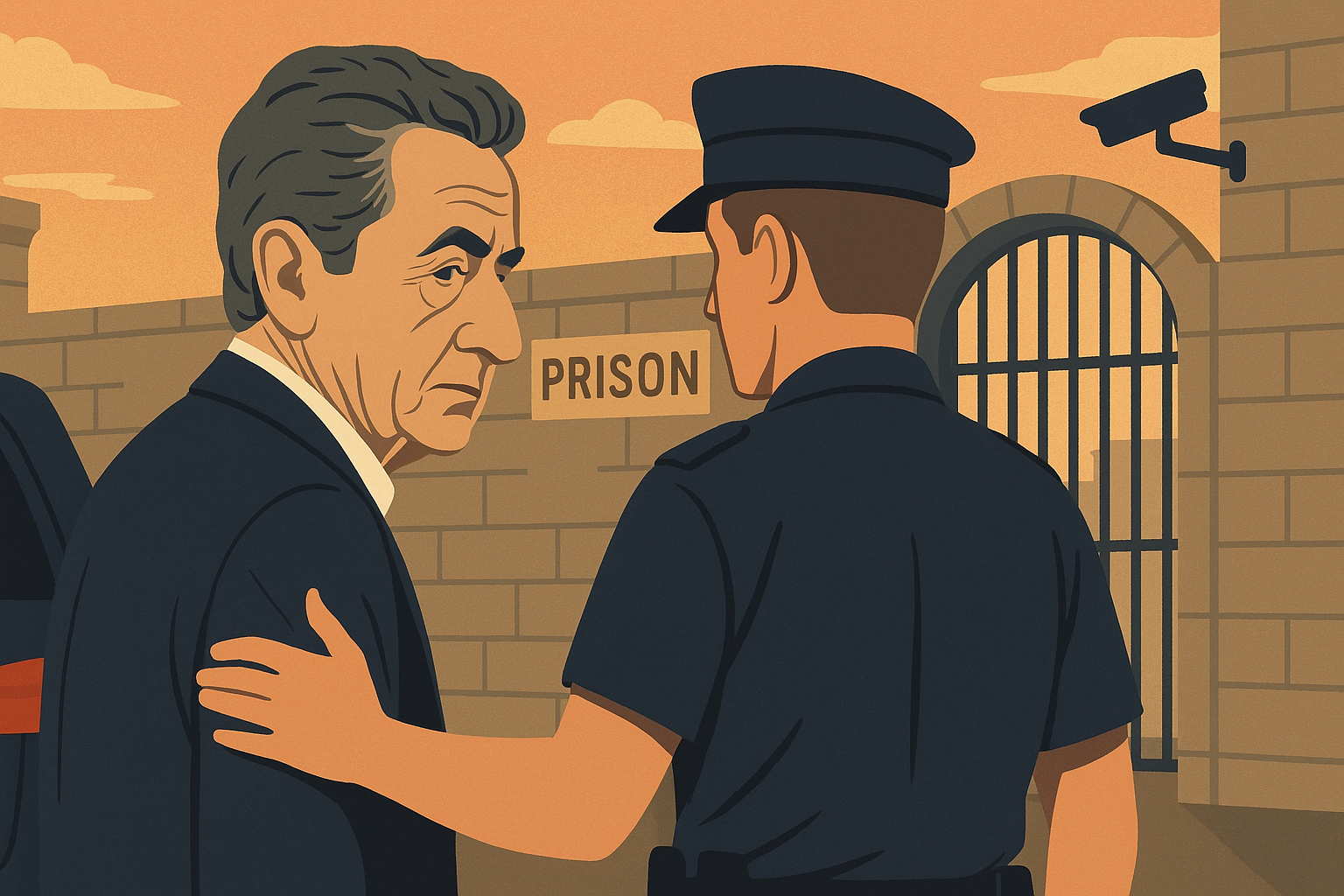Former French president Nicolas Sarkozy has begun serving a five-year prison sentence after being convicted of criminal conspiracy in a case linked to alleged illegal financing from Libya during his 2007 presidential campaign. The decision marks a historic moment, making Sarkozy, 70, the first former French leader to serve jail time.
Sarkozy, who continues to deny any wrongdoing, described the ruling as a “violation of the rule of law” and said he would appeal the decision. He began his sentence on Tuesday at La Santé Prison in Paris, where he will be kept isolated from other inmates for security reasons. The prison has previously held figures such as Manuel Noriega and Jérôme Kerviel.
The Case and Conviction
The case stems from long-standing allegations that Muammer Gaddafi’s regime provided millions of euros to fund Sarkozy’s successful 2007 campaign. Judges found him guilty of criminal conspiracy but cleared him of more serious charges including embezzlement and illegal campaign financing. In addition to prison time, Sarkozy was ordered to pay a €100,000 fine.
Sarkozy has consistently maintained his innocence. “It’s not a former president of the republic who is being jailed this morning — it’s an innocent man,” he said in a statement posted on X as he was transported to prison. His lawyers announced plans to seek provisional release, which could take up to two months to process.
Political Reactions and National Impact
The verdict has divided French public opinion and reignited debate about judicial independence and political accountability. President Emmanuel Macron, who met Sarkozy days before his incarceration, said he respected the independence of the judiciary but acknowledged the “human dimension” of the situation.
Justice Minister Gérald Darmanin, a former ally of Sarkozy, expressed sympathy for his former mentor but drew criticism for promising to visit him in prison — a move some prosecutors said could undermine judicial neutrality.
Meanwhile, far-right leader Marine Le Pen, herself recently convicted in an EU funds misuse case, denounced what she called the “automatic application of sanctions” before all appeals are exhausted, describing it as “a great danger.”
A Polarizing Figure and Political Legacy
Despite leaving office in 2012, Sarkozy remains one of the most influential — and controversial — figures in French politics. His conviction has sent shockwaves through the political establishment, underscoring how the justice system is increasingly holding even the most powerful figures accountable.
Sarkozy’s legal troubles are not limited to this case. He has previously been convicted in another illegal campaign financing case, received travel restrictions, and was required to wear an electronic monitoring bracelet.
Still, his inner circle describes him as defiant and determined. “He’s very resilient and combative — in campaign mode to show his innocence,” said Franck Louvrier, his former communications adviser.
Before entering prison, Sarkozy reportedly told friends, “The end of the story has not been written.” He carried with him two books: a biography of Jesus and Alexandre Dumas’ “The Count of Monte Cristo” — a symbolic choice for a man seeking redemption amid one of France’s most dramatic political scandals.








